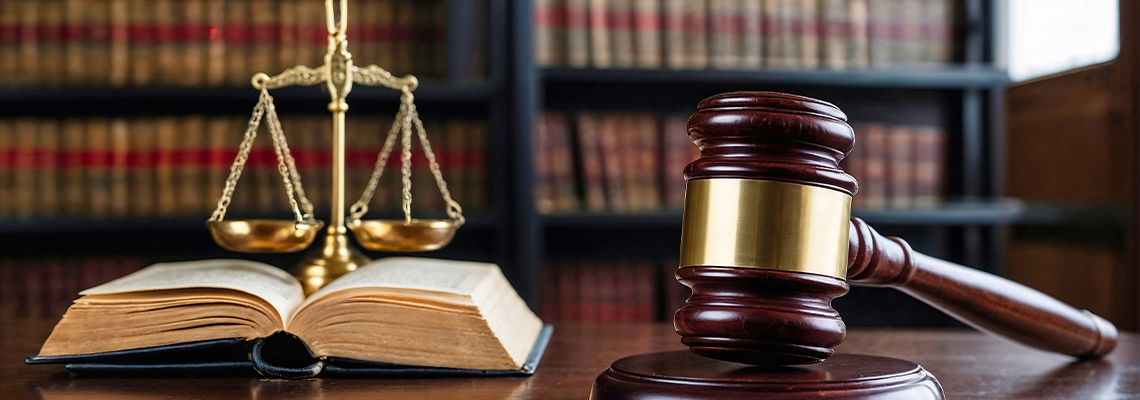Losing a loved one can raise urgent legal questions at the same time you’re trying to manage practical realities. One of the most common points of confusion is who actually has the legal authority to file a wrongful death lawsuit, especially when several family members are grieving and want answers.

Steps to Appeal a Criminal Conviction
Individuals in Virginia sometimes feel discouraged after a criminal court’s decision but want to explore ways to keep fighting. Forbes Law Firm assists those who are ready to consider the steps to appeal a criminal conviction and pursue an additional review of their case.
We serve clients in Hampton Roads and surrounding areas such as Hampton, Newport News, Poquoson & York County, and Williamsburg.
Appealing isn’t about redoing the entire trial but focusing on certain legal errors or procedures that affected the outcome. This process demands close attention to deadlines, proper filings, and compelling arguments that detail how the court might have mishandled evidence or instructions.
Understanding each step can help people see how an appellate court’s review works in criminal law matters. Our Virginia criminal law attorney is here to help. Read on or reach out to learn more.
The Basics of Criminal Appeals In Virginia
Criminal cases can arise from a range of offenses, such as DUIs, theft, and assault. If someone is found guilty, they’re typically sentenced based on guidelines and the court’s interpretation of events.
When a person decides to appeal a criminal conviction, they argue that something went wrong procedurally or legally during the trial. Perhaps the judge excluded vital evidence or gave faulty jury instructions, or a lawyer made objections that weren’t properly addressed.
Appellate courts in Virginia review records from the lower court to see if legal mistakes occurred. Speeding tickets and other lesser charges sometimes produce appeals, but felony cases tend to draw the most interest due to higher stakes.
Those who appeal must highlight specific points of error rather than simply stating dissatisfaction with the verdict. This approach can lead to a new trial, a changed sentence, or even a reversed conviction if the court agrees a significant mistake took place.
Filing a Notice of Appeal
A notice of appeal is often the first formal step to appeal a criminal conviction. This document informs the trial court and the opposing side that the defendant wants an appellate court to review the case.
Failing to meet the filing deadline can cost someone the chance to appeal altogether. Once the notice is submitted, the appellate process officially begins, and parties anticipate the preparation of transcripts and court records for further examination.
Some individuals feel pressured when dealing with strict deadlines or procedural rules. That’s understandable, especially if the trial ended recently and emotions are still running high.
Still, each requirement serves an important function—timely notice keeps the process organized so courts aren’t blindsided by appeals long after final judgments. After the notice is properly filed, the next big step typically involves assembling the record.
Gathering and Reviewing the Trial Record
An appellate court bases its review on evidence and arguments presented during the original trial. That’s why the written record, including transcripts, documents, and exhibits, is crucial.
Errors that happened in the courtroom should be identifiable within these materials. If an attorney objected to the admission of evidence or noted that a judge’s ruling was incorrect, it should appear in the transcript.
Preparing the record isn’t always quick. Court reporters must finalize the trial transcript, sometimes with hours of testimony to type. Once it’s complete, the record is shared with the appellate court and both sides.
Those looking to appeal a criminal conviction use this opportunity to examine how the judge and jury reached their decision. If a key witness’s testimony was contradictory or a judge’s evidentiary ruling seemed out of step with legal standards, these points often shape the grounds for the appeal.
Drafting the Appellate Brief
Writing the appellate brief is typically one of the most labor-intensive steps to appeal a criminal conviction. This document outlines the legal issues in the case, cites relevant statutes and prior court decisions, and applies those rules to the facts.
The goal is to show how the trial court’s approach departed from established law or procedure, causing an unfair result. Appellate courts rarely hear new evidence, so a thorough written argument is essential.
Many briefs follow a structured format that includes:
Statement of the case: Summarizes the trial’s background and essential details.
Assignment of errors: Pinpoints specific rulings or legal interpretations that might have been incorrect.
Legal argument: Explains how the law applies to each claimed error, often citing precedential cases.
Conclusion: Requests a certain outcome, such as a new trial or a reversal of the conviction.
Drafting a strong brief takes time, especially if the conviction arose from an intricate legal issue. Lawyers must review transcripts, research case law, and refine arguments so the appellate judges clearly see why errors impacted the trial’s fairness. Once the appellant files this brief, the prosecution can file a response defending the trial court’s decisions.
Preparing for Oral Argument
Not every case involves oral argument, but many appeals in Virginia allow each side to present statements to the appellate judges. An attorney usually has a limited time—sometimes 15 or 20 minutes—to summarize the main arguments and answer questions from the bench.
This phase can be significant because judges might probe weaknesses or ask for clarity about nuances in the record. Some cases end up with decisions made on the briefs alone, but oral argument can give the judges a deeper sense of the case.
A strong oral argument usually covers the main points raised in the brief, focusing on the most compelling legal errors. It’s also a chance to respond to the prosecution’s counterarguments and demonstrate how those responses align with the record.
Although it’s a shorter process than a trial, thorough preparation matters. Defendants who appeal a criminal conviction benefit when their counsel anticipates questions and has precise answers about case citations or parts of the transcript.
Possible Outcomes of an Appeal
People sometimes expect a full retrial or immediate dismissal when they appeal a criminal conviction. While an appeal might lead to a second trial, the appellate court has other options:
Affirming the conviction: The court agrees the trial was conducted properly, and the verdict stands.
Reversing the conviction: The court finds a key error and overturns the guilty verdict, possibly leading to a new trial or dismissal.
Modifying the sentence: The appellate court agrees with the conviction but adjusts the penalty if it deems the original punishment was improper.
Appealing a verdict can also set the stage for more steps, such as petitioning a higher court. Some defendants file motions for reconsideration or take the dispute up to the Virginia Supreme Court if permitted. Each path depends on how the appellate ruling addresses the issues raised in the brief.
Common Grounds for Appealing a Criminal Conviction
Certain errors and controversies appear frequently in criminal appeals. These often revolve around legal rights, trial fairness, or procedural flaws. Understanding these common grounds can help someone deciding to appeal a criminal conviction confirm whether they have a valid argument. Some possibilities include:
Ineffective assistance of counsel: Representation fell below expected standards, possibly affecting the verdict.
Improper admission or exclusion of evidence: The judge made rulings that hindered the defendant’s ability to present a strong case.
Incorrect jury instructions: The jury received misleading or incomplete instructions on the law.
Prosecutorial misconduct: The prosecution acted in a way that compromised the fairness of the trial.
Sentencing errors: The punishment exceeded legal guidelines or ignored critical factors.
Reviewing the trial record can show if these issues surfaced. If they appear, they might serve as the basis for a compelling appeal. Of course, not all errors result in reversal. The appellate court decides whether the mistake rose to the level of changing the trial’s outcome.
Contact Us Today
Forbes Law Firm serves clients throughout Hampton Roads, Virginia, including the surrounding areas of Hampton, Newport News, Poquoson & York County, and Williamsburg. If you’re ready to take steps to appeal a criminal conviction and don’t know where to begin, call or reach out online. You’ll receive straightforward information about preparing appellate filings and meeting court deadlines. Contact us for an assessment of your situation and to explore potential paths forward.




